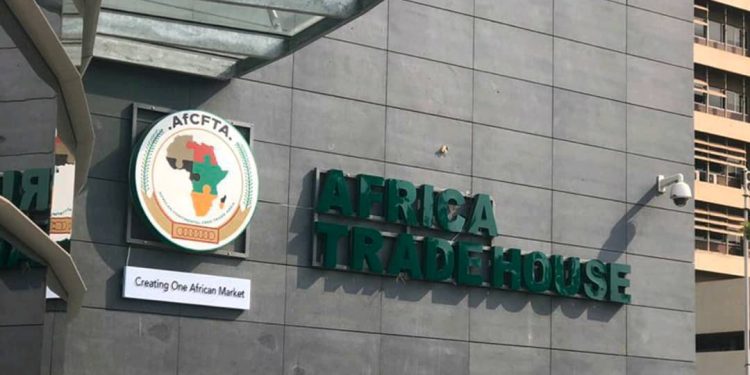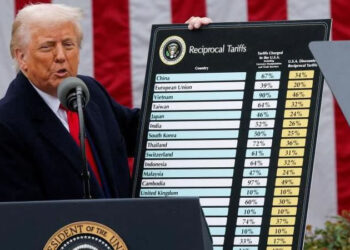By Enyichukwu Enemanna
The African Continental Free Trade Area, (AfCFTA) Secretariat and Trademark Africa, (TMA) on Friday, signed a partnership agreement targeted at enhancing trade infrastructure within the African continent.
Secretary General of AfCFTA Wamkele Mene, said the introduction of digitization and other modern trade infrastructure would reduce the time and cost of transit trade in Africa upon the full implementation of this agreement.
At the signing of the Memorandum of Understanding during the ongoing Africa Prosperity Dialogue in Accra, the capital of Ghana, Mene expressed hope that the partnership will help improve the collective competitiveness of all countries under the continental free trade agreement.
“It is possible to see the ambition of TMA to support our vision of integrating the 3.4 trillion-U.S.-Dollar African market becoming a reality,” said Mene.
He also acknowledged the success stories of TMA in East Africa and the Horn of Africa region, especially in introduction of modern digital trade facilities.
“We shall adopt a corridor-to-corridor approach in reforming the transit processes and improve the collective competitiveness of all the trade corridors on the continent,” he said.
The deal was sealed at a period the company, Trademark Africa was rebranding from the previous Trademark East Africa and the opening of its West African business.
“Africa is a sleeping giant due to its vast potentials that are yet to be tapped. But now, we are closer to that dream than when we started,” said Erastus Mwencha, board chairman of TMA.
He said the partnership would enable the private sector player to expand its impactful programming progressively and support the AfCFTA to unleash the immense impact of free trade in high-value products on the continent.
Mwencha, a former deputy chairman of the African Union Commission, said the company would focus on facilitating the development of digital and green trade corridors to position Africa as a partner of choice for global off-takers.
He said the company’s activities would also promote inclusive trade that drives down poverty levels and ensures that “vulnerable groups are more integrated into the trading systems.”
“Our aim remains trade facilitation just as we have done over the past 12 years in the East and Horn of Africa regions. The time is ripe to modernize the physical and virtual trading corridors. With this partnership, the sky is the limit, and the benefits are immense,” Mwencha added.




































